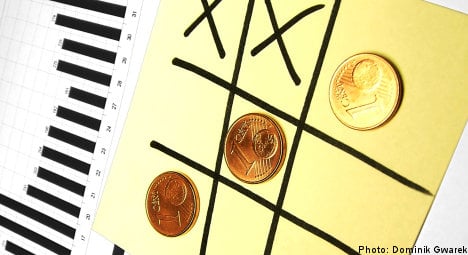According to a poll from Statistics Sweden (SCB), 44 percent of Swedes would vote yes to the euro, while 42 percent indicated they would vote no.
The results mark the first time since Sweden’s 2003 referendum on the euro that a majority of Swedes favour ditching the krona.
“It’s a little surprising,” said SEB bank currency analyst Carl Hammar, to the TT news agency.
Historically, Swedish support for the euro increases when the krona depreciates. But during much of 2009, the Swedish currency has strengthened relative to other currencies, albeit from rather low levels.
And the Swedish economic crisis would have likely been worse if Sweden had been part of the eurozone.
“We’ve been helped enormously by the krona being relatively weak,” said Hammer.
Around 14 percent of respondents indicated they were undecided about how they would vote in a referendum on the euro, however, and the 2 percent advantage for the pro-euro camp isn’t statistically significant.
Major differences also remain between the level of support for the euro among men and women.
Among men, 50.3 percent favour the euro, while 38.4 percent want to keep the Swedish krona.
The results are reversed for women, however, with 37.2 percent indicating they would vote yes to the euro, while 45.6 percent said they would vote against switching to the European currency.
Since SCB’s last poll in May, there has been a noticeable increase in support for the euro among sympathizers of both the Social Democratic and Moderate parties.
In addition, fewer Social Democratic supporters indicated they are against adopting the euro.
Compared with results from a poll conducted in November 2008, there has been an increase in the number of people who would vote yes to the euro among sympathizers of all political parties represented in the Riksdag except the Centre Party and the Christian Democrats.



 Please whitelist us to continue reading.
Please whitelist us to continue reading.
Member comments